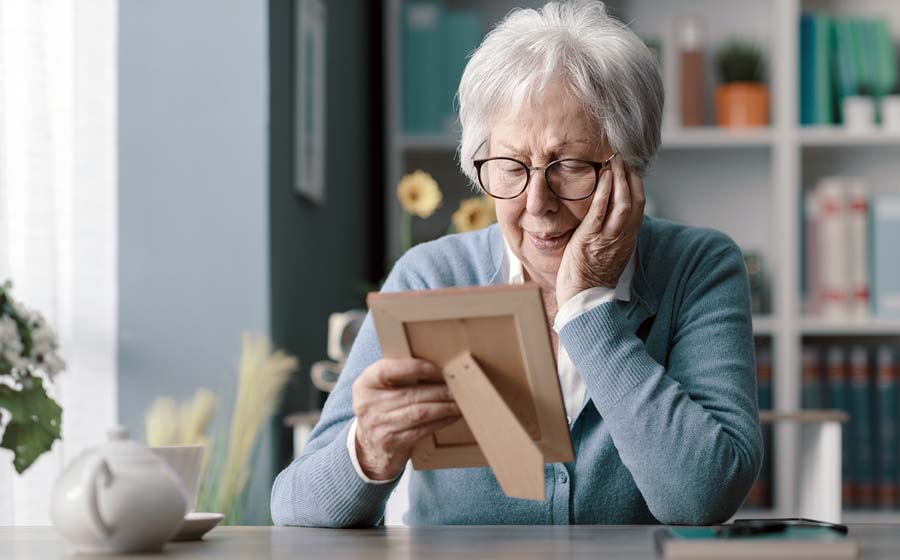Definition: (Description / Characteristics):
A widower or widow is a person whose spouse has died.
Women in Germany have a higher life expectancy than men. That is why there are more widows than widowers in Germany. In the 70 to 75 age group, almost a quarter (24.7%) of all women are widows. For men in this age group, the figure is 6.8%.[1]
Based on the age at which survivor's pensions are received, it can be seen that the start of this phase of life has been pushed back in recent years. In 2010, the average age at which survivor's pensions were received was 70.6 for widows and 72.6 for widowers. In 2020, the average age at entry was 73.3 years (widows) and 76.2 years (widowers).[2]
Market potential: (current & future):
Figures from the German Pension Insurance show that in 2021 around 4.5 million widows received a widow's pension and around 700,000 widowers received a widower's pension [3]. This does not include widows and widowers of civil servants who receive so-called widow's benefits. More than 5.2 million people in Germany are widowed.
Needs: (entry phase & in phase):
Financial situation: The survivor's pension is usually 55% of the old-age pension of the deceased. If there is other income in addition to the survivor's pension, 40 percent of this is offset against the pension above a certain exemption amount. Exception: In the first three months after the death of the partner, the income is not added to the widow's pension or widow's pension. Widower's pension taken into account. If the widow or widower is already drawing an old-age pension, the survivor's pension will be paid in addition; in the event of a new marriage, this payment will be discontinued.
If the widow's or widower's pension is the main source of income or even the only income, the financial situation can be very tense. The money is often not enough to maintain the standard of living. Some of the surviving dependents already have problems covering the cost of living. Widowed women in particular are at higher risk of poverty in old age. After all, the income of women and consequently their future pension from gainful employment is significantly lower than that of men. However, there are also many widows and widowers who are financially secure. In principle, however, the financial situation should be checked whenever there is a change in income and expenses.
Free time, life planning: This phase of life begins with grief and suffering. How the individual deals with it, what support and how much time he or she needs to process the pain of the loss is very different. In addition to mourning, for many it means rethinking their life plans. The bereaved are challenged to reorganize their lives, initially without a partner. This applies to both everyday life and leisure time. The reorientation in this phase of life can trigger a number of developments, such as a change of location (moving to a smaller apartment or close to children), new activities and social involvement. In addition, the death of a partner causes many to worry about their own health, the end of life and their legacy. In addition to writing living wills, powers of attorney and wills, this often also includes biographical work. Depending on one's own circumstances, there is also the issue of provision for any need for care. However, the life phase of widows and widowers is not only determined by difficult issues. After the period of mourning, most widowed people regain their zest for life and take an active part in social life. A well-functioning social network is of great importance.
Partnership: Instead of partnership, it means adjusting to being single – and that while still in the mourning phase. There is a risk of discouragement, loneliness and prolonged depression. Many also feel overwhelmed, e.g. decisions have to be made alone. For people living alone, family and friends become an important support. After a period of mourning, when the bereaved have settled into their new life, some of them become open to new relationships and also to a new partnership.
Scenarios:
Be it that the death may have occurred quite unexpectedly, or a time of farewell has preceded - what being a widow or widower means, you cannot really prepare yourself for. Many of those affected lack professional advice and support, especially at the beginning of this life stage. In addition to grief counseling and emotional support (self-help groups, maintaining contacts, e.g. through the use of digital media), there is a need for practical offers of help in order to be able to better organize everyday life on your own. This also includes a reassessment of the financial situation. What is needed here is advice on performance claims, potential savings, e.g. for fixed costs such as rent, electricity or telephony, possibly also for refinancing. Companies and service providers that adapt to the needs of this target group can establish and consolidate customer contacts.
Other markets are holiday trips for widows and partner forums and exchanges for widows.
Sources:
[1] Statistisches Bundesamt (2021)
[2] Rentenversicherung in Zeitreihen
[3] Statistik der Deutschen Rentenversicherung

